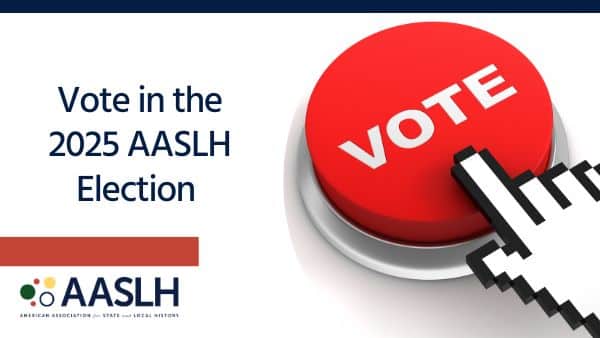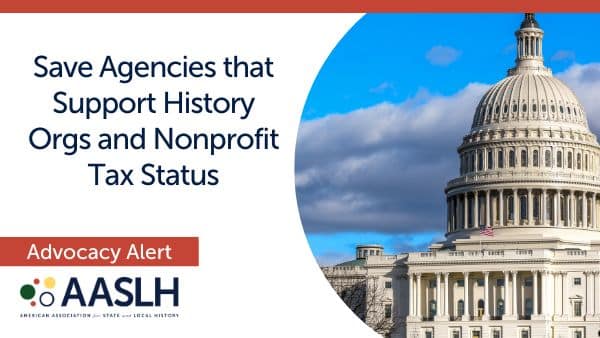I think we can all agree that assessment programs are important, but it’s not always as clear how self-assessment and standards impact an organization’s day-to-day work and long-term goals. The workbook for AASLH’s Standards and Excellence Program for History Organizations (StEPs) is open-ended and flexible just for that reason.
The workbook’s structure allows to you focus on the areas that matter to your organization. StEPs is designed to dovetail with the work you are already doing, like caring for your collections, planning exhibits, and working with a board. The StEPs process helps you evaluate this work and identify your strengths and areas for improvement.
Here are 22 ways the 700+ organizations enrolled in StEPs have told us that they are using the program:
- Educate board members in their roles and responsibilities
- Train entry level paid and unpaid staff
- Create a refresher checklist for experienced paid and unpaid staff
- Justify the need for changes in policies and practices
- Learn about national museum standards
- Measure how well your organization is already meeting standards
- Guide long range or strategic planning
- Use as a structure for board meeting agendas
- Justify funding requests to foundations, governmental entities, etc.
- Justify funding requests to board of directors
- Create better budgets
- Use as a resource when writing job descriptions for paid and unpaid staff and committees
- Include as a resource for internship programs
- Add credibility to grant applications
- Satisfy a parent agency’s benchmarking or performance requirements
- Use as a structure for annual reports
- Track organizational progress from year to year
- Better articulate progress to your community and stakeholders
- Identify projects that can be matched with specific funders or benefactors
- Receive national recognition for institutional progress
- Prepare for participation in other assessment programs (like MAP, CAP, and Accreditation)
- Create a more vibrant and sustainable organization!
Want to learn more and get started with StEPs? Contact Cherie Cook (573-893-5164) or enroll online.




